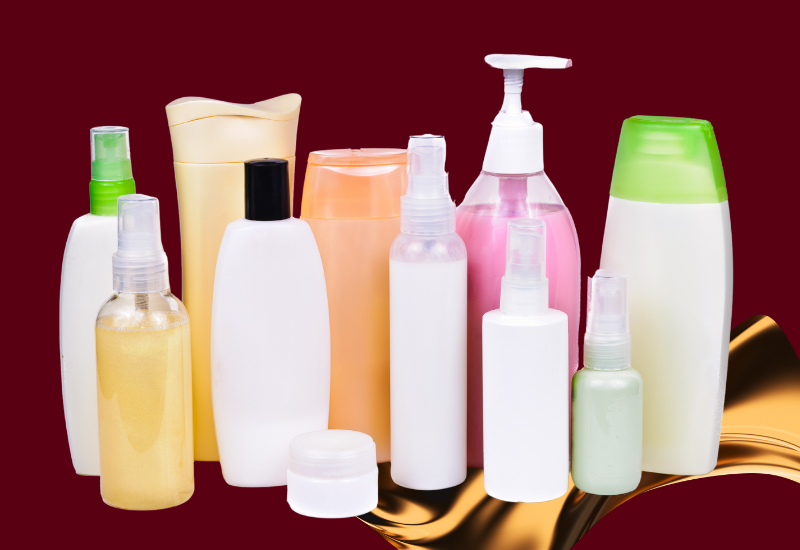In a world that is becoming increasingly conscious of environmental issues, industries across the board are seeking ways to minimize their ecological footprint. The cosmetics and personal care industry is no exception. One of the key steps toward a more sustainable future in this sector is the adoption of recyclable HDPE (High-Density Polyethylene) bottles and containers. In this blog, we will explore the various facets of using HDPE bottles in the cosmetics and personal care industry, including safety, functionality, cost-effectiveness, scalability, and their eco-friendliness.
What Makes HDPE Bottles Stand Out?
HDPE Bottle Manufacturer’s Perspective
From the viewpoint of an HDPE bottle manufacturer, the appeal of these containers is clear. HDPE is a versatile plastic material that is known for its exceptional strength and durability. This makes it ideal for packaging cosmetics and personal care products, which often require robust packaging to protect the contents from external factors. HDPE bottles can withstand physical stress and provide an effective barrier against moisture, light, and air, ensuring the product remains in its best condition until it reaches the consumer.

HDPE Bottle Exporter’s Advantage
For HDPE bottle exporters, the global demand for sustainable packaging solutions is an opportunity worth seizing. The cosmetics and personal care industry is a massive global market, and companies are increasingly inclined to source eco-friendly packaging materials. Exporters of HDPE bottles can cater to this demand, capitalizing on the shift towards greener alternatives in packaging.
Safety First: Physical and Chemical Integrity
Physical Safety
The safety of packaging materials is a paramount concern in the cosmetics and personal care industry. Consumers must trust that the products they use are stored in containers that will not compromise their safety. HDPE bottles are renowned for their physical safety. They are resistant to shattering, ensuring that they do not pose a danger if dropped or handled roughly. This characteristic provides peace of mind to both manufacturers and consumers.
Chemical Safety
HDPE bottles also excel in chemical safety. They are non-reactive and inert, which means they do not interact with the products they contain. This is particularly important for cosmetics and personal care products that often contain various chemicals and compounds. HDPE bottles preserve the integrity of the product, preventing any contamination or chemical reactions that could compromise quality or safety.
Functionality: Protecting Your Product
The functionality of packaging is vital in the cosmetics and personal care industry. HDPE bottles offer numerous benefits in this regard.
Protecting Against External Factors
Cosmetic products are sensitive to environmental factors, including UV light, moisture, and air exposure. HDPE bottles act as a reliable shield against these factors, preventing damage and preserving the product’s effectiveness. This protection is especially important for items like sunscreen, which require UV-resistant packaging to maintain their potency.
Dispensing Control
Many personal care products require precise dispensing. HDPE bottles can be designed with different types of closures, from flip-top caps to pump dispensers, ensuring that the right amount of product is dispensed with each use. This not only enhances the user experience but also reduces product wastage.
Economical and Cost-Effective
Cost-effectiveness is a significant consideration in the cosmetics and personal care industry. Manufacturers are often looking for ways to reduce expenses without compromising on quality.
Affordability
HDPE bottles are affordable compared to some alternative packaging materials. Their cost-effectiveness makes them an attractive choice for companies looking to reduce packaging costs without compromising the quality or safety of their products.
Reduced Environmental Impact
The cost-effectiveness of HDPE bottles extends beyond the production phase. These containers are recyclable, which means that they can contribute to cost savings in waste management. By choosing recyclable packaging materials, companies can reduce disposal costs and potentially benefit from recycling incentives. With advancements in technology, it is possible to produce HDPE bottles with 100% Post Consumer Recycled Plastics (PCR).
Scalability: Adaptable to Industry Demands
The cosmetics and personal care industry is characterized by diverse product lines and constant innovation. Scalability to produce in large numbers is crucial in adapting to the ever-changing market, and HDPE bottles can be mass-produced.
Versatile Packaging
HDPE bottles are available in various sizes and shapes, making them suitable for a wide range of products, from shampoos and lotions to serums and creams. Their versatility allows manufacturers to package products of different viscosities, textures, and formulations attractively and practically.
Customization Options
HDPE bottles can be easily customized with labels and graphics to create a unique brand identity. The ability to customize packaging is crucial in the highly competitive cosmetics industry, allowing companies to stand out and connect with consumers. Decoration options range from self-adhesive labels, in-mould labels, and printing to hot foil stamping.
Environment-Friendly Packaging
As the cosmetics and personal care industry seeks to reduce its ecological impact, environmentally friendly packaging options have gained prominence.
Recyclability
One of the most compelling aspects of HDPE bottles is their recyclability. When properly collected and recycled, HDPE bottles can be transformed into new containers or other plastic products, reducing the need for virgin plastic production and lessening the burden on landfills.
Lower Carbon Footprint
The manufacturing process of HDPE bottles is less energy-intensive compared to certain alternative materials like glass. This results in a lower carbon footprint, contributing to reduced greenhouse gas emissions and a greener industry.
Conclusion
The use of HDPE bottles in the cosmetics and personal care industry offers a greener and more sustainable future. From the perspective of HDPE bottle manufacturers and exporters, they provide durability and cater to the growing demand for eco-friendly packaging. These bottles also ensure physical and chemical safety, protecting both the product and the consumer. Their functionality, cost-effectiveness, scalability, and recyclability make them a versatile and environmentally friendly choice.
In a world where consumers are increasingly concerned about the environmental impact of their purchases, HDPE bottles represent a positive step towards a more responsible and eco-conscious cosmetics and personal care industry. By adopting recyclable HDPE plastic bottles and containers, companies can not only reduce their ecological footprint but also meet the expectations of consumers who are seeking green products that align with their values. It’s a win-win for both businesses and the planet, paving the way for a greener, more sustainable future.

